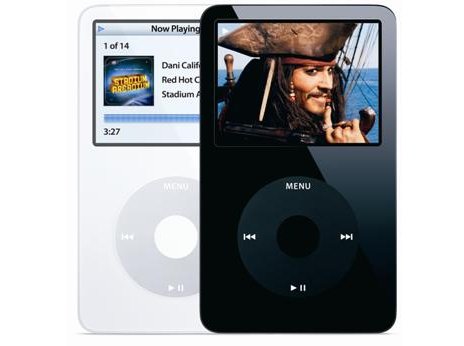EU attacks Apple in DRM disdain
Apple's FairPlay lockdown policy criticised again

The European Union has turned up the heat on Apple by criticising the digital rights management (DRM) it imposes on iTunes downloads. EU consumer chief, Meglena Kuneva, hit out at the American company in an interview with German magazine Focus.
Apple's iTunes software is the dominant force in the digital music downloads market, but all MP3 files downloaded using the program are encrypted with Apple's own FairPlay DRM. This means the tracks cannot be copied, and can only play in iTunes and on Apple iPods .
"Do you think it's fine that a CD plays in all CD players but that an iTunes song only plays in an iPod? I don't. Something has to change," Kuneva said in the interview.
Consumer rights groups across Europe have been uniting in their battle against Apple's imperialistic grip on the digital music marketplace. They disagree with Apple's DRM-policies, saying that the company locks down music files so they can only play in software and devices made by Apple itself.
Abuse of power
This, they say, is an abuse of Apple's position. It is argued that the excessive use of DRM is not to protect the music copyright owners but to force consumers to pay for Apple products.
Anti-DRM protesters will welcome Kuneva's comments, although some might be slightly disappointed by a statement released by the European Union which said the remarks she made were fuelled by her own personal opinions and did not reflect current EU policy.
The Norwegian Consumer Watchdog has been engaged in a battle against Apple and its DRM policies for some time now, and is on the verge of declaring it illegal - Norway can do this independently because it is not part of the EU.
Sign up for breaking news, reviews, opinion, top tech deals, and more.
Jobs comments
Last month , Apple CEO Steve Jobs called for digital rights management to be scrapped in an open letter to music fans, the company's critics and the music industry.
Jobs said Apple had been given no choice by the big four music companies - Universal, EMI, Sony BMG and Warner - over DRM-protected content on iTunes. He said the big four had been "reluctant and cautious" over digital downloads, and that if Apple's Fairplay DRM was breached and then not fixed within a matter of days the record companies could "withdraw their entire catalogue from the iTunes Store".
To date, Apple has sold 90 million iPods and 2 billion songs on iTunes; an average of 22 copy-protected tracks per iPod sold.
Apple nearly ended up in French courts in 2004 over its DRM policies, but narrowly avoided litigation when the French government changed its laws to allow iTunes to operate legally in the country.

James was part of the TechRadar editorial team for eight years up until 2015 and now works in a senior position for TR's parent company Future. An experienced Content Director with a demonstrated history of working in the media production industry. Skilled in Search Engine Optimization (SEO), E-commerce Optimization, Journalism, Digital Marketing, and Social Media. James can do it all.